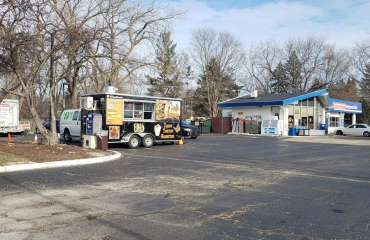Opinion: Support job-training programs that actually put people in better-paying jobs – The Colorado Sun
Become a member
Learn more
Become a member
Learn more
Colorado has money to spend on closing the ‘middle-skills gap.’ It should bet only on programs that can prove they move people up the pay ladder
As elected officials work to build a more equitable Colorado economy, they should think about a young Coloradan who recently shared her story with me. To protect her privacy, I’ll call her Rosa.
Rosa was raised by a single mom, who immigrated here from Mexico and worked to the bone to support Rosa and her brothers.
Rosa served as a U.S. Marine, then moved to Colorado and enrolled as a part time student at CU Denver. She worked full time, earned less than $30,000 per year, and struggled with Denver’s cost of living. With no savings, she lived one unexpected emergency from disaster.
Rosa was good with technology, and she applied for IT jobs. But, with no formal training and no postsecondary credential or degree, no one was hiring.
Then, Rosa found a program called Per Scholas.
READ: Colorado Sun opinion columnists.
Per Scholas is a 15-week, tuition-free intensive IT bootcamp. It combines hard tech skills, like setting up a network or a remote connection to a laptop to troubleshoot, with skills such as how to write a resume, interview, negotiate salary, and communicate well with a manager and coworkers.
Per Scholas is offered in 17 cities; in Denver, it’s delivered by a local nonprofit called ActivateWork. More than 80 percent of their learners live in poverty when they enroll, and like Rosa, also are people of color.
Rosa worked and studied hard. With a voucher through the program to cover the cost of her exams, she earned her CompTIA A+ certification.
She is now an IT support analyst at a prominent Denver-based company, where she earns more than $50,000, and is saving for the first time. She loves her job. She is on track to earn more than $80,000 annually in the coming years as a network administrator or a cybersecurity specialist, and earn her family’s first college degree by 2023.
Rosa’s story isn’t a one-off anecdote. We know this because 2 rigorous randomized evaluations of Per Scholas show it significantly increases wages in the 2 years following training, compared to other programs.
Per Scholas is effective because it bridges our skills gap. Colorado’s IT sector, 77 percent white, has 30,000 unfilled cybersecurity and coding jobs, with an average salary of more than $100,000. Filling these jobs would grow Colorado’s economy by $3 billion, and generate millions in additional tax revenue each year. Meanwhile, 300,000 working-age Coloradans live in poverty, and are twice as likely as their neighbors to be Coloradans of color. Companies are splurging to hire overseas workers for IT jobs, when local talent in our communities could be upskilled.
It’s not just IT. Even before the pandemic, less than 40 percent of Colorado’s primary care, dental and mental health needs were met by the state’s healthcare workforce. COVID-19 accelerated these trends, worsening shortages in critical areas such as nursing.
Another program, Project Quest, trains nurses. Like Per Scholas, Quest serves learners who are primarily in poverty. Like Per Scholas, a rigorous randomized evaluation shows robust long-term wage gains for those served (this time with 11 years of follow up data).
Other training programs have similar rigorous evidence showing they work, and would help address a middle skills gap in other Colorado sectors, including construction, skilled trades and advanced manufacturing. These models meet learners where they are, and work closely with regional high growth, high wage employers to refine their curriculum and place their graduates. Another local Colorado-based nonprofit training program, CrossPurpose, has a similar approach, with promising earnings data on their learners.
These models share one other feature: None are currently funded at scale by the public sector anywhere in this country. Many of the training programs the public sector has historically funded have not sustainably increased long-term learner wages or filled our skills gap.
We can do better. Imagine if any Coloradan in or near poverty could follow Rosa’s path, enrolling in one of several effective, intensive upskilling and reskilling training programs to connect them with a good-paying and fulfilling job.
We should work to make this vision a reality. Governor Polis and the Colorado legislature soon will decide how to allocate unspent American Rescue Plan Act federal stimulus funds on workforce development and job-training priorities. President Biden’s Build Back Better proposal, if enacted, makes additional investments in the coming years. And in a historically tight labor market, with companies finally paying diversity and equity more than just lip-service, some employers could offer retention bonuses for effective programs that demonstrably meet their workforce needs, supplementing public funding for future cohorts of learners.
But deploying this funding solely through the status quo won’t help thousands of Coloradans who, like Rosa, need effective pathways to economic mobility. The General Assembly and the Governor should attach a meaningful evidence standard to these funds, prioritizing programs such as Per Scholas and Quest in the top evidence tier, or similarly structured local programs with promising evidence, willing to participate in a rigorous evaluation to measure wage outcomes.
This is not a partisan idea, and both parties support it. In the coming legislative session, let’s work together to leverage these historic public sector investments to build a more equitable economy that works for all Coloradans.
Roger Low, of Lakewood, is CEO and Founder of the Colorado Equitable Economic Mobility Initiative, a nonprofit that works to scale effective workforce training programs backed by evidence.
The Colorado Sun is a nonpartisan news organization, and the opinions of columnists and editorial writers do not reflect the opinions of the newsroom. Read our ethics policy for more on The Sun’s opinion policy and submit columns, suggested writers and more to opinion@coloradosun.com.
We believe vital information needs to be seen by the people impacted, whether it’s a public health crisis, investigative reporting or keeping lawmakers accountable. This reporting depends on support from readers like you.
Roger Low, of Lakewood, is CEO and Founder of the Colorado Equitable Economic Mobility Initiative, a nonprofit that works to scale effective workforce training programs backed by evidence.
With 103,000 customers, United Power accounts for 20% of Tri-State’s business and pays almost double the open-market price for electricity.
A Colorado State University researcher hopes to reduce transmission of the deadly virus by putting ivermectin into bird feeders
Citing a growing body of environmental justice rules, neighbors and conservation groups use first-time petition process to demand reversal of a 2020 decision they say slighted city rivers.
Logic dictated a compromise by now. So did this: If a bill is not passed by Dec. 28, millions of families probably won’t get their child-tax-credit checks in January.



